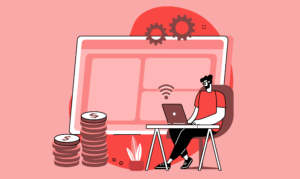[fusion_builder_container hundred_percent=”no” hundred_percent_height=”no” hundred_percent_height_scroll=”no” hundred_percent_height_center_content=”yes” equal_height_columns=”no” menu_anchor=”” hide_on_mobile=”small-visibility,medium-visibility,large-visibility” class=”” id=”” background_color=”” background_image=”” background_position=”center center” background_repeat=”no-repeat” fade=”no” background_parallax=”none” enable_mobile=”no” parallax_speed=”0.3″ video_mp4=”” video_webm=”” video_ogv=”” video_url=”” video_aspect_ratio=”16:9″ video_loop=”yes” video_mute=”yes” video_preview_image=”” border_size=”” border_color=”” border_style=”solid” margin_top=”” margin_bottom=”” padding_top=”” padding_right=”” padding_bottom=”” padding_left=””][fusion_builder_row][fusion_builder_column type=”1_1″ layout=”1_1″ spacing=”” center_content=”no” link=”” target=”_self” min_height=”” hide_on_mobile=”small-visibility,medium-visibility,large-visibility” class=”” id=”” background_color=”” background_image=”” background_position=”left top” background_repeat=”no-repeat” hover_type=”none” border_size=”0″ border_color=”” border_style=”solid” border_position=”all” padding_top=”” padding_right=”” padding_bottom=”” padding_left=”” margin_top=”” margin_bottom=”” animation_type=”” animation_direction=”left” animation_speed=”0.3″ animation_offset=”” last=”no”][fusion_text]
It is an understatement to say that companies have been severely impacted by Covid-19. Fluctuations in demand, labor, and inventory have resulted in slower order fulfillment. And government-mandated lockdowns have made it downright impossible to fulfill some orders, including events, classes, and experiences.
Issues with order fulfillment and shipping, coupled with the instability in the personal lives of consumers, have led to a rise in the number of customers seeking refunds on orders. In many cases, customers will bypass the company entirely and instead seek out a chargeback as a fast way to secure a refund.
Issuing a chargeback on an order that is affected by pandemic-related delays is comparable to hitting the “easy button.” Customers could reach out and ask for the status of an order or for a refund directly, but many are opting for a faster resolution, heedless or unaware of the consequences to your business.
It’s important to be understanding towards your customers right now. People do the best they can in uncertain times, and sometimes they’re not aware of the consequences of their actions.
However, you can and should still take steps to protect your business and lower the number of unwarranted chargebacks. You have a right to stand up for your company’s interests while respecting your customers. Here are six measures you can take to limit unnecessary chargebacks during Covid-19.
Deliver What Was Promised, or a Suitable Alternative
To avoid chargebacks, you must be able to fulfill your customers’ orders or offer suitable replacements (such as a voucher or store credit). If you cannot follow through on your side of the agreement, then your customers have every right to file chargebacks.
Remove the “Force Majeure” Provision From Your Terms and Conditions
Force majeure (which means superior force) is a provision that frees one or more parties from an agreement in the case of an unforeseen and uncontrollable event that prevents them from fulfilling their side of the agreement. This provision can be found in the Terms and Conditions of many companies. Surprisingly, in the event of Covid-19, the cardholder is the main benefactor of the provision. Recently, cardholders and issuers acting on their behalf have been citing force majeure to justify chargebacks.
Let’s say a customer places an order. Your company is willing and able to fulfil the order or offer up a suitable replacement. However, the customer changes their mind due to a change in their personal circumstances. They might attempt to issue a chargeback on the grounds of force majeure, claiming they are unable to reasonably claim the product or service due to circumstances that might include government restrictions.
This provision gives your customers ammunition to issue chargebacks without entirely just cause. Reexamine your Terms and Conditions and remove the force majeure provision (if it is listed). If your Terms don’t account for a force majeure, customers will have less material that works in their favor. They may be dissuaded from issuing an unjustified chargeback if it’s harder to win the case.
Issue Refunds Generously
On the other hand, you should absolutely be understanding when your customers come to you directly for a refund or cancellation. Be as lenient in issuing refunds as you can afford to be. Refunds are preferable to chargebacks in most cases, as they’re not accompanied by fees and fallout with card issuers.
In some cases, it will make more sense to deny refund requests. If a customer is clearly abusing current circumstances, then weigh your options and make the choice that protects your company and diminishes potential fallout.
Publicize Your Terms and Conditions
Make your Terms and Conditions policy readily available to customers. Give customers every chance to be made aware of your terms before they place their order. If you make any changes to the terms, be completely upfront about it.
This level of transparency will prompt customers to rationally evaluate their buying decisions. While that might cause a fraction more hesitation during the buying process, it will inspire more trust in your customers and decrease the likelihood that they initiate chargebacks impulsively. Be transparent and encourage rational action.
Communicate Clearly and Often
Share the general status of order fulfillment upfront. If your company is experiencing fulfillment issues or shipping delays, let your customers know with a banner on your homepage or an email blast. Explain what issues you’re encountering and how you’re responding to them. If you don’t communicate general delays, your customers won’t know to reframe their expectations. They’ll feel frustrated when their order is delayed without noticed.
Additionally, provide customers with frequent updates on their individual orders when possible. Share milestones such as when their order has been received, fulfilled, and shipped, as well as any delays along the way.
Respond to Customers Quickly
While you may be working with a smaller team than usual, don’t let customer service slip because of it. Responding to your customers’ issues promptly will reduce their frustration, along with the likelihood that they pull the chargeback trigger in haste.
Conclusion
Amidst economic upheaval, inventory shortages, and fluctuations in the workforce, you’ve got enough problems in front of you to solve. Take precautionary measures to limit unnecessary chargebacks during Covid-19 and preserve your relationships with your customers.
[/fusion_text][fusion_imageframe image_id=”49680″ style_type=”none” stylecolor=”” hover_type=”none” bordersize=”” bordercolor=”” borderradius=”” align=”none” lightbox=”no” gallery_id=”” lightbox_image=”” alt=”” link=”” linktarget=”_self” hide_on_mobile=”small-visibility,medium-visibility,large-visibility” class=”” id=”” animation_type=”” animation_direction=”left” animation_speed=”0.3″ animation_offset=””]https://www.centurybizsolutions.net/wp-content/uploads/2020/05/How-to-Limit-Chargebacks-During-Covid-19-02.png[/fusion_imageframe][/fusion_builder_column][/fusion_builder_row][/fusion_builder_container]



